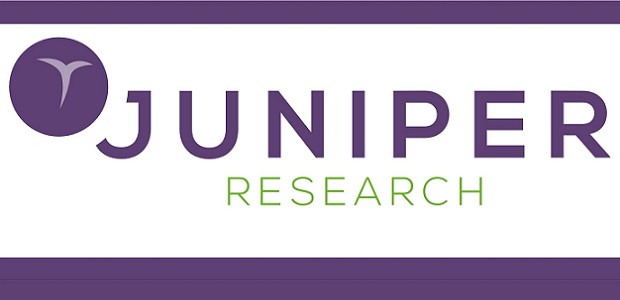
New entrants surge as traditional banks struggle to justify investment in backend Digitisation.
New data from Juniper Research found that B2B transactions processed by pureplay digital operators will reach $14 trillion by 2023, up from $6.7 trillion in 2018, as the new entrants offer cheaper and faster services than established players in the space.
According to the research, B2B Money Transfer – Domestic & Cross-Border Market Opportunities 2019-2023, found that bank purchase departments can struggle to quantify ROI (Return on Investment) from the implementation of digital technologies to replace, or augment, existing mechanisms. As a result, they are heavily reliant on manual processes and traditional suppliers.
Conversely, new entrants such as Modulr and Soldo have entered the space without the baggage of legacy systems and use updated and real-time payments technology that integrates with companies’ accounting software; thereby reducing the costs involved, while also increasing accounting reconciliation efficiencies.
For more insights, download Juniper’s free whitepaper: B2B Payments Beyond Banking ~ The $14 Trillion Prize.
ACI – Leads Juniper’s B2B Payment Vendors List
In the research, Juniper assessed 15 payment vendors; comparing the relative level of their capabilities and offerings in the space. According to Juniper, the 5 leading vendors are as follows: ACI Universal Payments, FIS, VocaLink/Mastercard, Fiserv and Finastra.
First-ranked ACI Universal Payments recently acquired SpeedPay, a US bill payments company, from Western Union, and post-integration will augment its portfolio with financial payments direct to consumers.
New standards, blockchain technologies enabling banks to increase transparency, transaction speed
The research found that established banks are in turn seeking to redress the balance through remedial measures; citing the ongoing implementation of SWIFT gpi, a new standard for cross-border payments, as a key development.
Juniper also argued that in the medium term, measures such as gpi Link, currently at the proof of concept stage, will reduce systemic inefficiencies and improve transparency by using blockchain platforms to initiate and complete transactions. It claimed that banks are increasingly likely to introduce digital currencies, equivalent in value to, and redeemable in, fiat currencies, to accelerate the processes.
Banking 4.0 – „how was the experience for you”
„To be honest I think that Sinaia, your conference, is much better then Davos.”
Many more interesting quotes in the video below: